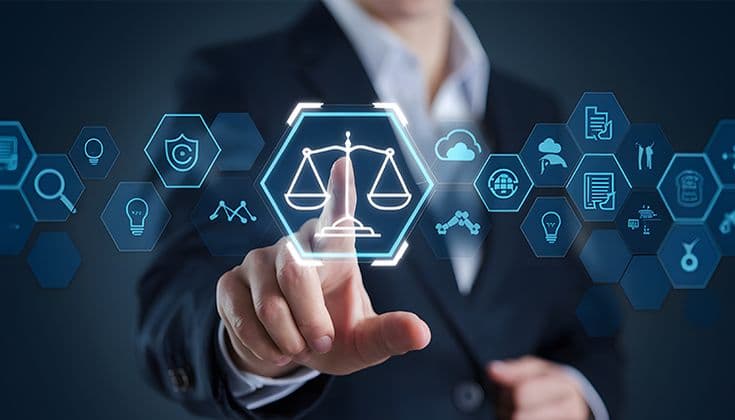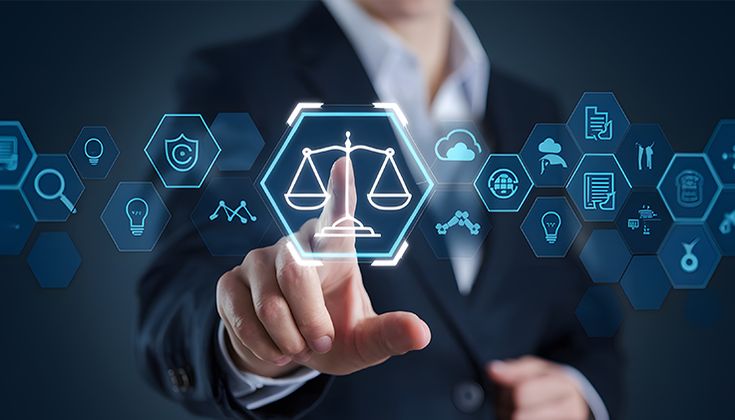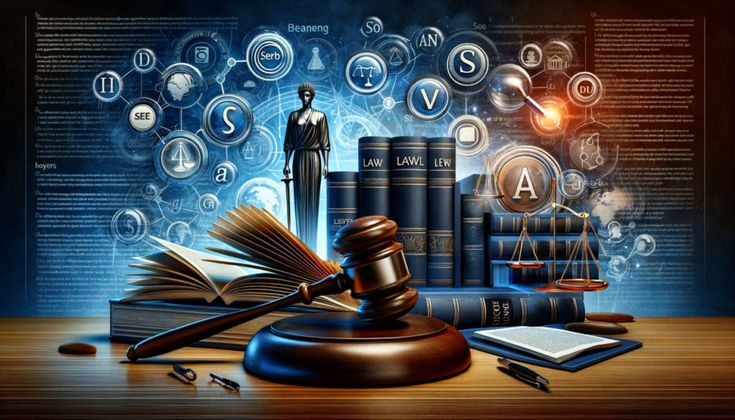
Transform legal practices with intelligent automation, contract analytics, and case management systems. From document review to compliance, our legal software solutions enhance efficiency, accuracy, and decision-making for modern law firms and corporate legal departments.
We develop AI-driven legal technology platforms that automate documentation, streamline case workflows, and enhance compliance management. Empower your legal team with advanced analytics, secure cloud storage, and real-time collaboration tools.




We design intelligent, secure, and cloud-based legal software solutions that automate document workflows, streamline case management, and ensure regulatory compliance. Our systems help legal professionals save time, reduce errors, and focus on delivering client value.
Digitize and automate every stage of contract management with precision. Leverage AI templates to draft, review, and negotiate agreements efficiently. Track versions, approvals, and renewals through a centralized dashboard. Gain insights from analytics to forecast obligations and risks. Ensure compliance and reduce manual intervention across departments.
Automate repetitive document creation and review using AI-powered tools. Maintain version control and storage with secure cloud integration. Reduce manual errors while accelerating case preparation workflows. Ensure data consistency across templates and contracts organization-wide. Empower teams with faster drafting, editing, and approval cycles.
Simplify discovery with AI that scans and categorizes massive legal data. Use NLP and machine learning to find key documents in seconds. Automatically flag privileged content and confidential information. Enhance accuracy while minimizing manual review time and cost. Protect sensitive data with advanced encryption and access control.
Transform raw case data into actionable intelligence with AI analytics. Predict case outcomes and identify trends through data-driven insights. Evaluate risks, precedents, and judge behavior to refine strategies. Visualize litigation patterns with real-time dashboards and reports. Make smarter legal decisions with predictive and prescriptive analysis.
Automate compliance tracking to meet ever-changing legal requirements. Receive instant alerts for policy updates and regulatory changes. Ensure accurate audits and maintain complete documentation trails. Integrate AI-driven rule engines to verify process adherence. Reduce compliance risks and boost transparency across operations.
Provide clients with secure access to case updates and documents anytime. Enhance collaboration through real-time messaging and progress tracking. Centralize client communications in one cloud-based platform. Boost satisfaction with transparency and quick information sharing. Build long-term trust through streamlined, digital-first experiences.

Automate case assignments, notifications, and document routing to enhance team productivity and collaboration.AI legal workflow automation
Use AI-powered search and OCR tools to instantly find key clauses, contracts, or precedents within your legal database.
Simplify invoicing, billing, and time tracking with automated tools that integrate seamlessly with case management systems.
Protect all confidential case files and sensitive client records with end-to-end encryption. Implement multi-layer authentication and user access restrictions. Ensure full compliance with data protection and privacy laws. Maintain role-based permissions for both lawyers and clients. Guarantee safe document sharing and audit-ready storage at all times.
Gain deeper insights into case success rates, billing cycles, and client satisfaction. Visualize key metrics through interactive and real-time dashboards. Identify workflow bottlenecks and optimize team productivity. Track historical data to forecast future legal outcomes. Empower data-driven decisions with comprehensive analytics tools.

Facilitate seamless communication between lawyers and clients anytime. Enable secure document exchange with automatic version tracking. Schedule consultations, meetings, and updates in one unified portal. Increase transparency with progress tracking and status alerts. Build long-lasting relationships through personalized client experiences.
Deploy AI tools to summarize lengthy legal documents and case files. Automate drafting of contracts, petitions, and standard legal forms. Provide instant case insights using natural language processing. Reduce manual workloads with intelligent task recommendations. Support lawyers in research, analysis, and case preparation efficiently.
Our expert legal software developers build advanced digital systems to streamline firm operations, enhance client service, and ensure compliance through smart automation.legal case management software
Organize cases, documents, and client data in one place. Simplify case tracking and collaboration with secure digital workflows.case management systems
Automate document creation, approvals, and court filings. Reduce manual errors while maintaining compliance and accuracy.document automation software
Simplify time tracking, billing, and trust accounting. Generate error-free invoices and financial reports automatically.legal billing software


Provide clients with real-time access to case updates. Enhance transparency and communication through secure portals.
Gain insights into case trends, lawyer productivity, and billing data. Make informed decisions with AI-powered reports.
Automate routine tasks and approvals across departments. Improve productivity with customizable legal workflows.
Law firms offer a wide range of services including corporate law, intellectual property, litigation, employment law, family law, and regulatory compliance. They provide advisory, representation, and documentation services to individuals, businesses, and organizations.
Legal technology streamlines case management, document automation, research, and client communication. AI-powered tools can assist in contract analysis, legal research, and predicting case outcomes, allowing lawyers to provide faster and more accurate services.
Legal compliance ensures that businesses and individuals adhere to applicable laws, regulations, and industry standards. Compliance reduces the risk of fines, lawsuits, and reputational damage while promoting ethical business practices.
Law firms maintain strict confidentiality through secure communication channels, encrypted document storage, and adherence to professional ethical standards. Client information is only shared on a need-to-know basis or as required by law.
Consider the lawyer's area of expertise, experience, track record, communication skills, and fees. It's also important to check their reputation, client reviews, and whether they understand your specific legal needs.
Legal services help businesses with contract drafting and review, intellectual property protection, risk management, regulatory compliance, dispute resolution, and corporate governance. This support enables businesses to operate efficiently while minimizing legal risks.
Litigation involves resolving disputes through court proceedings, while alternative dispute resolution (ADR) includes methods like mediation and arbitration. ADR is often faster, more cost-effective, and less adversarial than traditional litigation.
Yes. Many law firms provide virtual consultations, digital contract drafting, and remote legal research. Online platforms also facilitate secure document sharing and electronic signatures, enabling efficient legal services without physical meetings.
Intellectual property law protects creations such as patents, trademarks, copyrights, and trade secrets. It ensures businesses can monetize and safeguard their innovations, brand identity, and creative content.
Legal services continuously adapt by monitoring new laws, industry regulations, and court rulings. Law firms provide guidance to clients, update contracts, and implement compliance strategies to keep businesses aligned with evolving legal requirements.